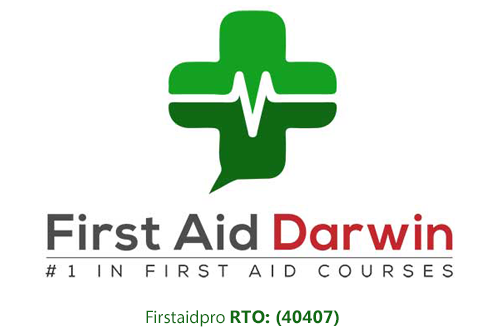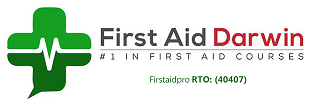Course Name
HLTWHS005 – Conduct Manual Tasks Safely
Course Cost
$125
Course Delivery
Blended: Self-paced Online Learning + In Person Practical Training
Course Duration
4 Hours – Face-to-Face Training & Assessment (+ self-paced pre-reading)
Is the course accredited?
Yes
Course Certificate
Issued same day (Conditions Apply)
Available Discounts
Group discounts available
Manual Handling Darwin
HLTWHS005 – Conduct Manual Tasks Safely
A manual handling course is officially known as HLTWHS005 Conduct Manual Tasks Safely. Any activity which involves the lifting, carrying, or relocating of a heavy object can be considered a manual handling task. Most industries deal with manual handling in some way, particularly healthcare, manufacturing, and freight and logistics. There are few professions to which a manual handling certification is not beneficial.
First Aid Courses Darwin is a leading registered training provider for short courses in in Australia. Our manual handling courses are endorsed by the Australian College of nursing. Through our deeply experienced and equally friendly trainers, we’re proud to provide the best training Darwin has to offer.
Why Choose First Aid Courses Darwin?
First Aid Courses Darwin offers Australia’s best manual handling training. Here’s why you should choose us:
- Experienced, compassionate trainers
- A nationally recognised course; Endorsed by the Australian College of Nursing
- CRICOS approved; our course are open to both domestic and international students
- Affordable courses; no hidden resource fees, pay everything upfront
- Convenient location; handily located in the heart of Darwin
Enquire Today
Contact us about our Manual Handling Course Today!
Manual Handling Course Curriculum
During a HLTWHS005 Conduct Manual Tasks Safely course, you’ll be taught all about how to identify potentially hazardous manual tasks, and what to do in order to perform these tasks safely. Safe manual handling practices you’ll learn about include Workplace Health and Safety (WHS) practices, methods for reducing risks, and how to position your body to safely lift and carry heavy objects. Following are some of the specific things you’ll learn in your course:
- The importance of planning a manual task, positioning your body correctly, and picking the best manual handling equipment
- Techniques for safe lifting and carrying
- How to be risk aware and perform risk control measures
- Workplace Health and Safety legislation and regulations
- How to report risks and unsafe practices
- Injuries which can result from improper manual handling including back injuries and spinal injuries
- Different types of manual handling equipment and tools, such as mechanical aids
Manual Handling Careers
Most industries require workers to perform manual tasks in some form or another. With such a broad definition, it’s little surprise that a manual handling certification comes in handy for most professions. Some of the jobs most likely to require a manual handling qualification include:
- Construction, manufacturing, production, freight, and logistics
- Healthcare, particularly aged care and community support
- Trades such as plumbing, carpentry, and electricians
- Custodial work, cleaning and maintenance, and waste management
- Agriculture and horticulture
Eligibility & Enrolment
First Aid Course Darwin’s manual handling course comes with no academic prerequisites to enrol. All students must meet the following minimum requirements:
- Be 18 years of age. With appropriate permission from a parent or guardian, students as young as 14 of age are also eligible to enrol
- Be fit enough to perform basic physical activities
- Have appropriate clothing for physical activities. Most importantly, this includes enclosed footwear.
- Have basic communication skills in English, both written and verbal
- Possess basic numeracy skills.
- Have a Unique Student Identifier (USI) number.
Course Delivery:
We deliver HLTWHS005 Conduct Manual Tasks Safely training through a hybrid learning system. Combining face-to-face practical training with self-paced online theoretical learning, students experience their manual handling training from every angle.
It is highly recommeneded that all students complete their pre-course online readings before attenging their in-person training session. This way they can ensure that they fully understand the course content and what will be required of them on the day. These readings take approximatly 30 to 60 hours to complete, but the precise length of time depends on your own skill level.
The in-person our training takes place from our Darwin training centre and lasts for approximately four (4) hours. Students get hands on practice and experience several practical examples of manual handling. Those who successfully complete their training are awarded a same day certification via email.
Course Fees:
The medication administration course consists of a single upfront payment of $125.
For any questions or concerns about paying course fees contact First Aid Darwin at 1300 029 132.
Training Locations
First Aid Courses Darwin offers HLTWHS005 Conduct Manual Tasks Safely training from our Darwin training centre in the heart of the city. Easily accessible by car or by public transport, our training centre can be found at the following address:
- Level 5, 116 The Esplanade, Darwin, Northern Territory, 0800
Entry Requirements
There are no prior academic requirements necessary to attend a medication administration course. At the minimum, attendees must possess basic literacy and numeracy skills, and the physical capability to interact with clients and provide them with medication, operate medication equipment and to store said equipment correctly after use.
Attendees will also require a device with an internet connection to complete the at-home eLearning and theoretical portions of their training.
Same Day Certification
When you successfully complete our medication administration training you will receive same day certification. While you can expect to receive the actual, physical certificate within a 24 hour period, you’ll be immediately qualified to utilise what you’ve learned.
The immediate validation of your skills increases students’ confidence in their new knowledge. It also means students are able to apply for jobs in healthcare or progress in their career as soon as possible.
Book A Manual Handing Course Today
Manual handling is vital for almost every career or profession. There are few people who don’t stand to benefit from manual handling training. Keep yourself safe and healthy on the job, help promote workplace safety, and secure your career by booking a manual handling course today.
Manual handling training can help save lives, and keeping the skills and knowledge fresh in your mind is vitally important. It is strongly recommended a manual handling qualification be renewed at once every 12 months. With First Aid Courses Darwin manual handling refresher training, you can ensure your skills stay sharp.
Frequently Asked Questions
Manual handling activities include a wide variety of tasks. Performing risk assessment is a key first step as the goal of manual handling is to minimise risk to reduce the chance of workplace injuries.
Specific manual handling tasks depend on the workplace, each industry has different tasks. Common jobs involve the lifting, lowering, pushing, pulling, carrying, or relocating of heavy loads or objects. In healthcare, specific duties include the relocation of patients. Risk controls for manual handling tasks include planning a carry, and positioning your body correctly before lifting or carrying.
Manual handling is relevant in many workplaces. It is especially important in places where employees often spend long periods performing living, carrying, and moving tasks. However, not all workplaces will require employees to hold a manual handling certification. Regardless, taking a manual handling course always presents a great opportunity for career progression.
Whether or not a job requires a certification is often up to the employers. Positions that most often require a manual handling certificate include construction workers, healthcare workers, and those in manufacturing, industry, freight, and logistics, to name a few. Plumbers, electricians, and other tradies who are not self-employed also often require a certification.
To find out if you need a manual handling certification, check in with your employer. If you’re applying for a new job role, the position requirements should outline whether a manual handling certification is required. You can also contact potential future employers to find out.
The validity of a manual handling qualification in Australia varies. Often, a manual handling qualification lasts for two (2) years, and in other circumstances, it may not expire at all. Regardless, a manual handling certification should be updated annually through refresher training to ensure the skills and knowledge remain second nature.
No. While training includes e-readings to be completed on your own time, due to the necessity of practical training, there are no online courses for manual handling. The only way to correctly learn the best and safest manual handling techniques is first hand through practical training sessions.
Learning how to safely perform potentially hazardous manual tasks is not something you can learn from reading a book. This is why all our training takes place in person, and simulates scenarios you might encounter in a real work environment.
Poor manual handling includes lifting awkward loads, loads that are too heavy, failure to identify potential risks, and using awkward postures. Moving loads in this way can lead to manual handling injuries. Examples include strains, musculoskeletal disorders, or the development of chronic and acute pain.
By using safe manual handling techniques you can reduce the likelihood of these injuries when performing potentially hazardous manual tasks. Avoid lifting above shoulder height, seek additional support when lifting especially heavy objects, ensure you always perform risk assessment and lift and carry objects using the proper posture.


